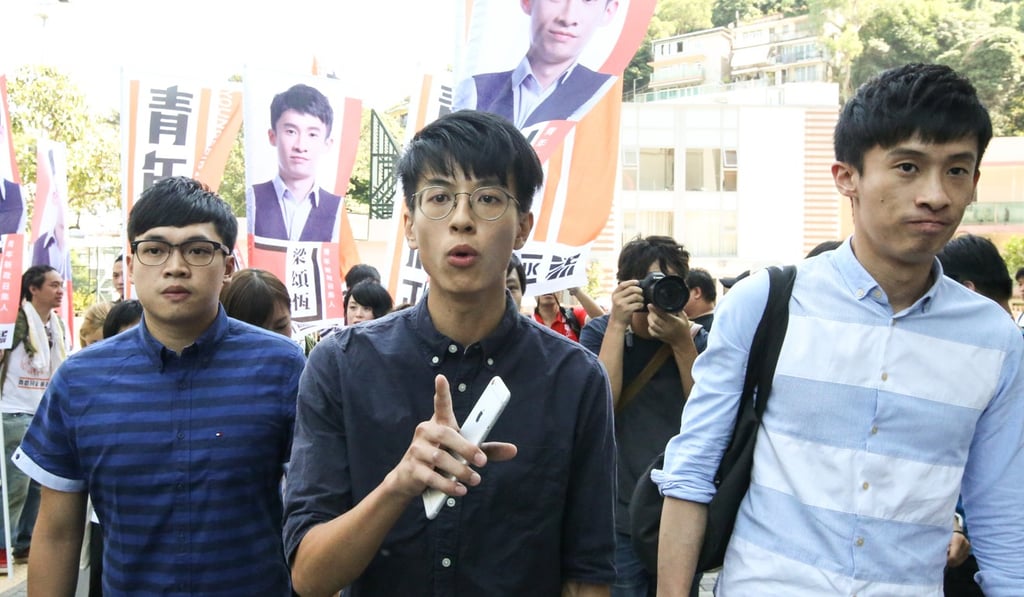Advertisement
Mong Kok riot fugitives offered refugee protection in Germany a ‘damaging blow’ to Hong Kong’s reputation and likely to anger Beijing, analysts say
- Advocates for Hong Kong independence, Ray Wong and Alan Li fled from Hong Kong in 2017 after riot that left 130 people injured
- Pair were members of localist group Hong Kong Indigenous, whose spokesman Edward Leung was jailed for six years
Reading Time:3 minutes
Why you can trust SCMP

Two fugitives who skipped bail on rioting charges in Hong Kong have reportedly been granted refugee protection in Germany, a move analysts said would anger Beijing and be a damaging blow to the city’s reputation.
Ray Wong Toi-yeung and Alan Li Tung-sing, who both advocate Hong Kong’s independence from mainland China, are wanted by police and face charges in relation to the Mong Kok riot in 2016, which left more than 100 people injured.
Several international media companies reported on Wednesday that Wong, 25, and Li, 27, members of the localist group Hong Kong Indigenous, fled the city to seek asylum in Germany in 2017 – which authorities approved last May.
Advertisement
While Wong declined interview requests by Hong Kong media, he told The Wall Street Journal his decision to reveal his asylum status was prompted by the government’s move to push ahead a controversial bill which could allow fugitives to be extradited to mainland China.
Advertisement

Advertisement
Select Voice
Choose your listening speed
Get through articles 2x faster
1.25x
250 WPM
Slow
Average
Fast
1.25x